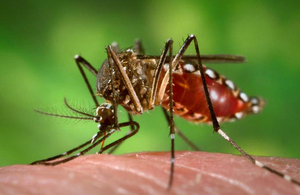Chikungunya cases increase in the Caribbean
Public Health England (PHE) confirms 197 cases of chikungunya so far in 2014.

Aedes mosquitoes
Public Health England (PHE) has been monitoring confirmed cases of chikungunya, which is reportedly on the increase in the Caribbean
PHE has been made aware of 197 cases so far in 2014, 162 cases of which have been associated with travel to the Caribbean and South and Central America. The countries from which cases have been most frequently reported include Jamaica, Barbados and Grenada.
In December 2013, chikungunya, infection which can cause early onset fever was first reported in St Martin, a French overseas territory in the Caribbean. By October 2014, more than 30 islands and countries in the region had also reported indigenous chikungunya.
Dr Jane Jones, travel and migrant health expert at PHE, said:
Chikungunya is an unpleasant viral illness that can cause fever and joint pains which in some patients may persist for a prolonged period. It is spread by mosquitos and is more usually found in parts of Asia and Africa but in recent years we have seen new areas of the world becoming affected, including the Caribbean and other parts of the Americas.
Dr Dipti Patel, Director of the National Travel Health Network and Centre, said:
There is no vaccine to prevent chikungunya. Travellers going to the Caribbean and other affected areas can reduce their risk of chikungunya and other mosquito borne diseases such as dengue fever by practising insect bite avoidance measures. Anyone returning from affected areas with symptoms such as fever and joint pain should seek medical advice.
Tim Brooks, Head & Clinical Service Director, Rare & Imported Pathogens Specialist at PHE, said:
Chikungunya is now a common infection in travellers from the Caribbean, and is currently reported more frequently than dengue. The Aedes mosquitoes which spread the disease are most active during daylight hours. Particular vigilance with bite avoidance should be taken around dawn and dusk. Doctors should consider chikungunya in patients with a fever who return from the Caribbean, especially if they have symptoms of arthritis, and test them for the disease.
The illness characteristically begins with a rapid onset of fever and joint pains, which may or may not be accompanied by muscle pain, conjunctivitis, and a rash. Most patients make a full recovery, but in some cases joint pain and arthritis may persist for several months, or even years. It is possible that chikungunya virus may continue to spread within the Caribbean and the Americas as the mosquito vector is present in much of the region.
The annual chikungunya data report was published in July 2014.
For more information about chikungunya, refer to PHE or the National Travel Health Network and Centre (NaTHNaC).